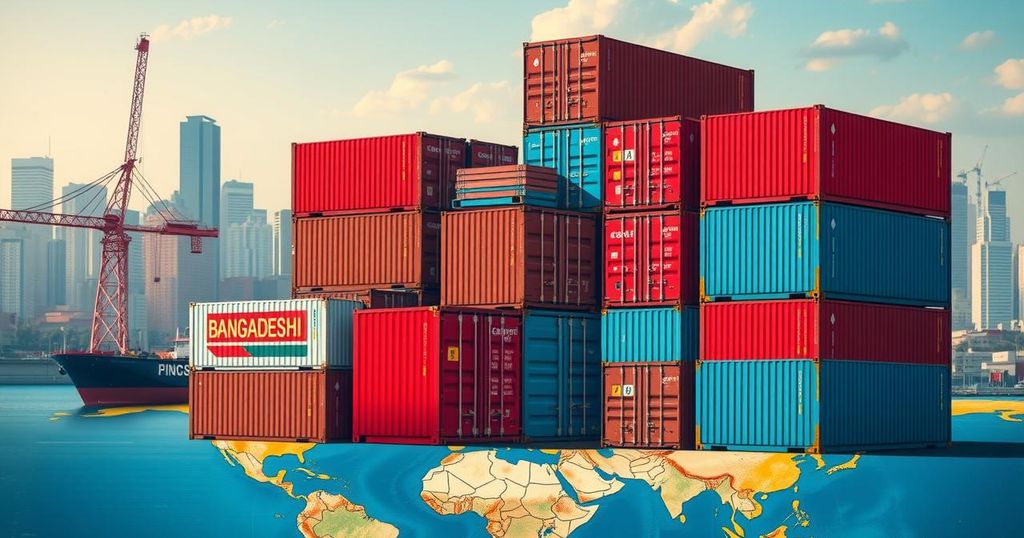U.S. President Trump has announced a 37% tariff on Bangladeshi goods, increasing from an average of 15%. This change may severely impact Bangladesh’s garment industry, which heavily relies on the U.S. market. Trump’s announcement came during a press conference where he called this an ‘Economic Liberation Day’ for the U.S.
On April 3, 2025, U.S. President Donald Trump announced significant new tariffs on imports from over 100 countries, specifically imposing a steep 37 percent duty on goods from Bangladesh. Previously, the U.S. tariff rate on Bangladeshi products averaged 15 percent, highlighting a drastic increase in the costs for Bangladeshi exporters.
The U.S. is a crucial market for Bangladeshi readymade garments, accounting for $8.4 billion in exports in 2024, with $7.34 billion of this consisting solely of garments. The newly imposed tariffs are expected to significantly affect Bangladesh’s garment industry, potentially leading to reduced competitiveness and loss of market share in the U.S.
Trump labeled the announcement as part of the U.S.’s “Economic Liberation Day,” marking a pivotal shift in trade policy. He noted that this day was long-awaited and aims to recalibrate trade dynamics in favor of U.S. interests.
According to a White House release, the 37 percent duty is a response to Bangladesh’s high tariffs on U.S. goods, which can reach up to 74 percent. This move illustrates an escalating trade tension between the two nations, as both countries reassess their economic policies regarding tariffs.
In summary, President Trump’s imposition of a 37 percent tariff on Bangladeshi goods marks a significant shift in U.S. trade policy, especially affecting the garment sector, which is vital to Bangladesh’s economy. The tariffs reflect retaliatory measures against Bangladesh’s high tariffs on U.S. products, signifying ongoing trade tensions that could reshape economic relations between the two countries.
Original Source: bdnews24.com






